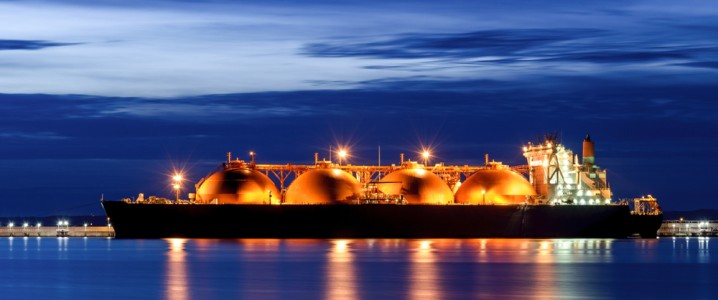Business
Exxon Seeks Long-Term LNG Contracts as Europe Shifts Energy Strategy

ExxonMobil anticipates that European gas buyers will increasingly commit to long-term liquefied natural gas (LNG) contracts with U.S. suppliers. This shift comes as Europe has emerged as a crucial market for U.S. LNG, according to a report from the *Financial Times*. The move aligns with a broader commitment made by Ursula von der Leyen, President of the European Commission, to then-President Donald Trump for the European Union (EU) to purchase $750 billion worth of U.S. oil and gas by 2028.
Historically, the EU has been hesitant to engage in long-term gas agreements, operating under the assumption that natural gas would not play a significant role in its future energy strategy. Instead, European buyers typically opted for spot market purchases and shorter contracts lasting one to two years. However, this approach appears to be changing, as noted by Peter Clarke, Exxon’s Senior Vice President of LNG.
Growing Demand and Recent Contracts
Recent developments indicate a potential shift in strategy among European gas buyers. Earlier this year, Italy’s Eni signed a 20-year contract with Venture Global for an annual delivery of 2 million tons of LNG. Similarly, Venture Global secured another 20-year agreement with Germany’s state gas buyer SEFE, which also entered into a 10-year contract with Conoco.
ExxonMobil is actively expanding its LNG capabilities through the construction of its Golden Pass LNG facility, developed in partnership with QatarEnergy. Expected to be commissioned in 2026, the plant aims to achieve a peak capacity of 15 million tons of LNG annually. A significant portion of this output is likely to be directed towards Europe, especially in light of the European Commission’s commitment and the recent calls for the EU to cease reliance on Russian energy imports.
Shifting Energy Landscape in Europe
Data from Exxon indicates that the EU currently imports 55% of its LNG from the United States, marking an increase of 20% from the previous year. With the potential for new long-term contracts, this figure could rise to 66% as Europe further distances itself from Russian energy sources, regardless of cost differentials.
The evolving dynamics of the European energy market reflect a broader strategic pivot, driven by geopolitical considerations and the need for energy security. As commitments solidify, U.S. LNG exporters like Exxon stand to benefit significantly from this transition, emphasizing the importance of long-term partnerships in an increasingly competitive global energy landscape.
As the situation develops, the focus on sustainable and reliable energy sources will likely continue to shape the future of energy procurement in Europe.
-

 Education3 months ago
Education3 months agoBrandon University’s Failed $5 Million Project Sparks Oversight Review
-

 Science4 months ago
Science4 months agoMicrosoft Confirms U.S. Law Overrules Canadian Data Sovereignty
-

 Lifestyle3 months ago
Lifestyle3 months agoWinnipeg Celebrates Culinary Creativity During Le Burger Week 2025
-

 Health4 months ago
Health4 months agoMontreal’s Groupe Marcelle Leads Canadian Cosmetic Industry Growth
-

 Science4 months ago
Science4 months agoTech Innovator Amandipp Singh Transforms Hiring for Disabled
-

 Technology4 months ago
Technology4 months agoDragon Ball: Sparking! Zero Launching on Switch and Switch 2 This November
-

 Education4 months ago
Education4 months agoRed River College Launches New Programs to Address Industry Needs
-

 Technology4 months ago
Technology4 months agoGoogle Pixel 10 Pro Fold Specs Unveiled Ahead of Launch
-

 Business3 months ago
Business3 months agoRocket Lab Reports Strong Q2 2025 Revenue Growth and Future Plans
-

 Technology2 months ago
Technology2 months agoDiscord Faces Serious Security Breach Affecting Millions
-

 Education4 months ago
Education4 months agoAlberta Teachers’ Strike: Potential Impacts on Students and Families
-

 Education3 months ago
Education3 months agoNew SĆIȺNEW̱ SṮEȽIṮḴEȽ Elementary Opens in Langford for 2025/2026 Year
-

 Science4 months ago
Science4 months agoChina’s Wukong Spacesuit Sets New Standard for AI in Space
-

 Business4 months ago
Business4 months agoBNA Brewing to Open New Bowling Alley in Downtown Penticton
-

 Business4 months ago
Business4 months agoNew Estimates Reveal ChatGPT-5 Energy Use Could Soar
-

 Technology4 months ago
Technology4 months agoWorld of Warcraft Players Buzz Over 19-Quest Bee Challenge
-

 Business4 months ago
Business4 months agoDawson City Residents Rally Around Buy Canadian Movement
-

 Technology4 months ago
Technology4 months agoFuture Entertainment Launches DDoD with Gameplay Trailer Showcase
-

 Technology2 months ago
Technology2 months agoHuawei MatePad 12X Redefines Tablet Experience for Professionals
-

 Top Stories3 months ago
Top Stories3 months agoBlue Jays Shift José Berríos to Bullpen Ahead of Playoffs
-

 Technology4 months ago
Technology4 months agoGlobal Launch of Ragnarok M: Classic Set for September 3, 2025
-

 Technology4 months ago
Technology4 months agoInnovative 140W GaN Travel Adapter Combines Power and Convenience
-

 Science4 months ago
Science4 months agoXi Labs Innovates with New AI Operating System Set for 2025 Launch
-

 Technology4 months ago
Technology4 months agoNew IDR01 Smart Ring Offers Advanced Sports Tracking for $169










